Photo Structure: A Key Element for Capturing Memorable Travel Photos
September 08, 2023

Traveling is all about new experiences and creating memories. And what better way to remember these moments than by capturing them in photos?
But taking memorable travel photos is more than just clicking a button. It’s about understanding the structure in photography. This means arranging everything you see in the frame in a way that tells a story. It’s how the composition, perspective, and light all work together.
Mastering photo structure can turn your travel pictures from simple snapshots into beautiful stories. In this guide, we will explore the techniques that can help you structure your photographs like a pro. We will also talk about photo post-processing methods using Luminar Neo, a photo editor with a bunch of cool AI-based tools.
So, let’s start this journey together and learn how to tell better stories by mastering the structure in photography!
Importance of Photo Structure in Travel Photography
Have you ever wondered why some travel images seem to capture your attention instantly while others just seem ordinary? The answer often lies in the photo structure. Photo structure is crucial in travel photography for several reasons:
Tells a Story
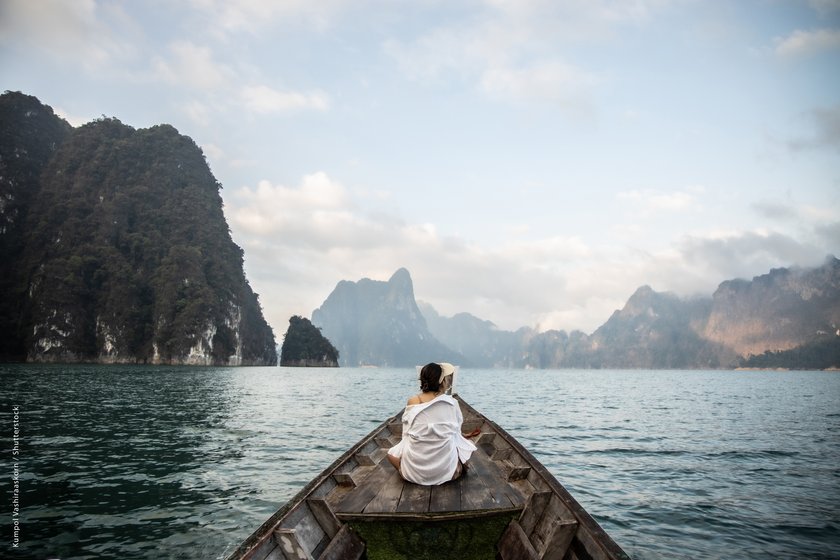 A well-structured photo can narrate a story, convey emotions, and give context to the viewer. It helps in translating not just the visual but also the feeling of the place, which is essential in travel photography.
A well-structured photo can narrate a story, convey emotions, and give context to the viewer. It helps in translating not just the visual but also the feeling of the place, which is essential in travel photography.
Creates Visual Interest
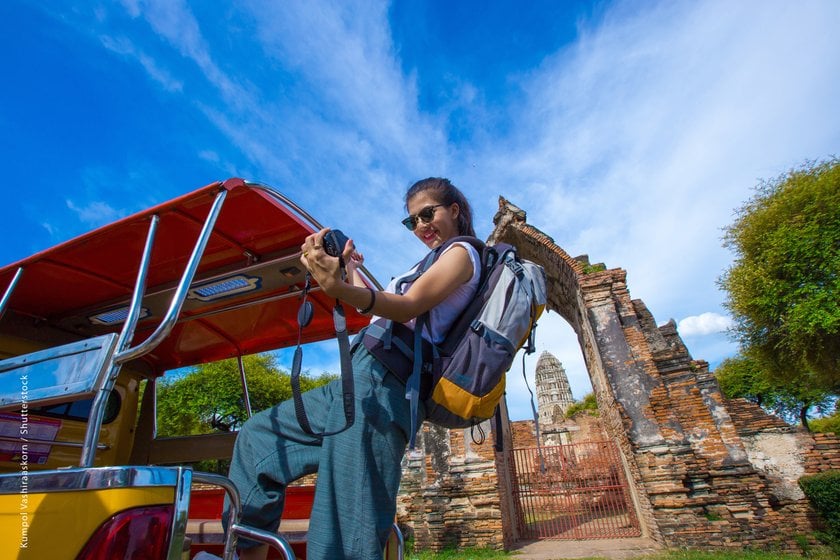 Effective structuring helps in guiding the viewer’s eye across the image, creating a visual pathway and a sense of depth. It makes the picture more engaging and dynamic.
Effective structuring helps in guiding the viewer’s eye across the image, creating a visual pathway and a sense of depth. It makes the picture more engaging and dynamic.
Enhances Aesthetics
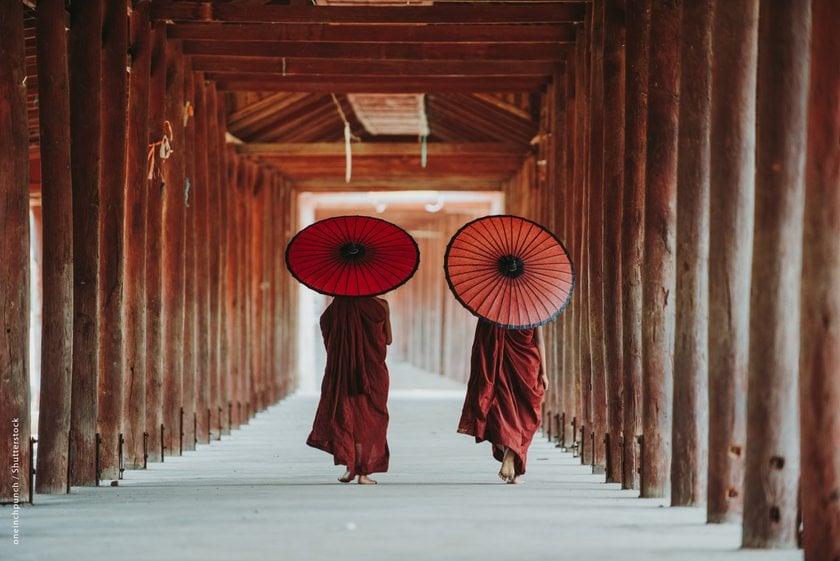 A well-composed photo with a strong structure is aesthetically pleasing. It brings balance, harmony, and a sense of completeness to the image.
A well-composed photo with a strong structure is aesthetically pleasing. It brings balance, harmony, and a sense of completeness to the image.
Understanding and implementing photo structure is key to take better travel photos. It elevates your photography from being just 'good' to 'great' and helps in capturing not just the scene but the essence of the place!
Mastering Photo Structure
To capture visually striking travel photos, one must master the various elements and techniques of photo structure. Let's delve into the key elements and techniques essential for story lens photography.
Key Elements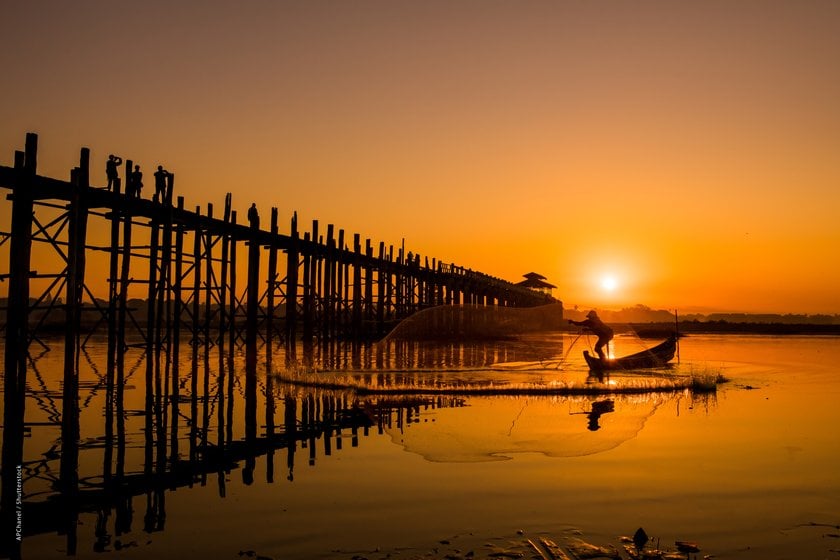
- The arrangement of visual elements in the photo. Pay attention to what you include in the frame and what you leave out. The goal is to create a harmonious scene that draws the viewer’s eye to the main subject.
- Lighting sets the mood and atmosphere of the image. The quality, direction, and color of light can dramatically change the appearance of the scene.
- The subject is the main focus of the photo, while the context is the surrounding environment that gives the subject relevance. Both should complement each other to create a compelling narrative.
Techniques for Structuring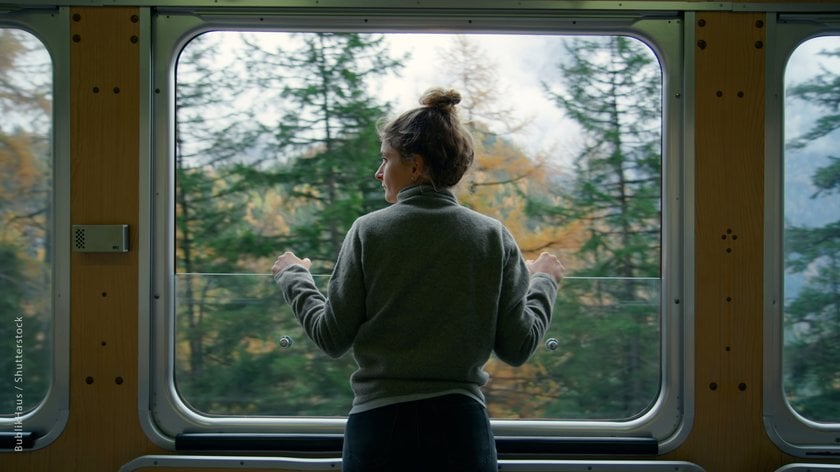
- Rule of Thirds: Imagine your image divided into nine equal segments by two vertical and two horizontal lines. Try to position the most important elements along these lines or at the points where they intersect.
- Framing: Use natural or man-made objects in the scene to create a 'frame' around the subject. This helps to isolate the subject, draw attention to it, and create a sense of depth.
- Depth: Creating a sense of depth in your photos makes them more three-dimensional and engaging. Use foreground, middle ground, and background elements to create layers in your image.
These are just a few travel photography tips to get you started on mastering photo structure. By understanding and implementing these elements and techniques, you will be able to craft pictures that not only capture the beauty of the destination but also tell a compelling story through your lens!
Want to capture stunning travel photos? Dive into the insights our editorial team has curated just for you. Discover the best travel camera backpacks—essential gear for every photographer. Read on and elevate your travel photography game!
Tips for Capturing Memorable Photos
Capturing memorable travel photos is not only about the technical aspects of photography. It's also about being creative, planning ahead, and having an eye for detail. Here are some tips that will help you create captivating stories through your images:
Planning Ahead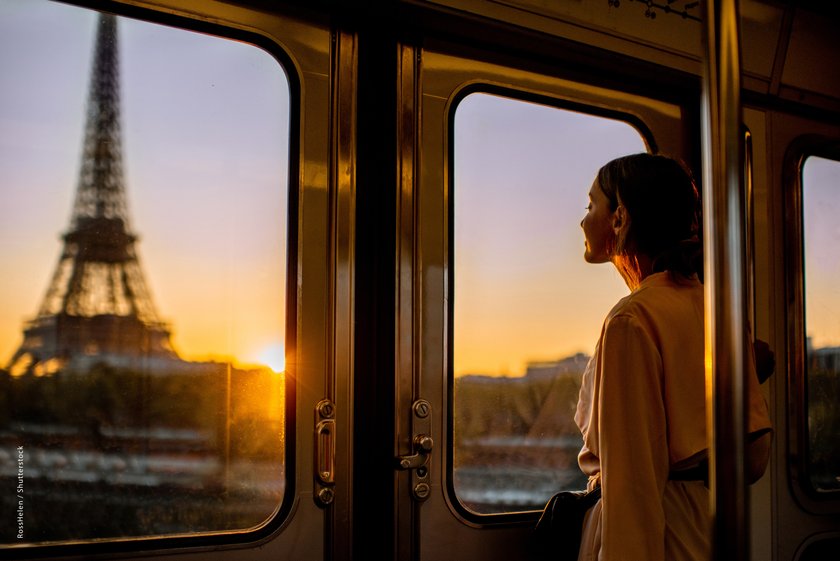
- Research the Location: Before you go, research the place you will be visiting. Learn about its culture, landmarks, and the best times to visit.
- Plan Your Shots: Think about the shots you want to capture ahead of time. But also be flexible and open to spontaneous moments.
Experimenting with Angles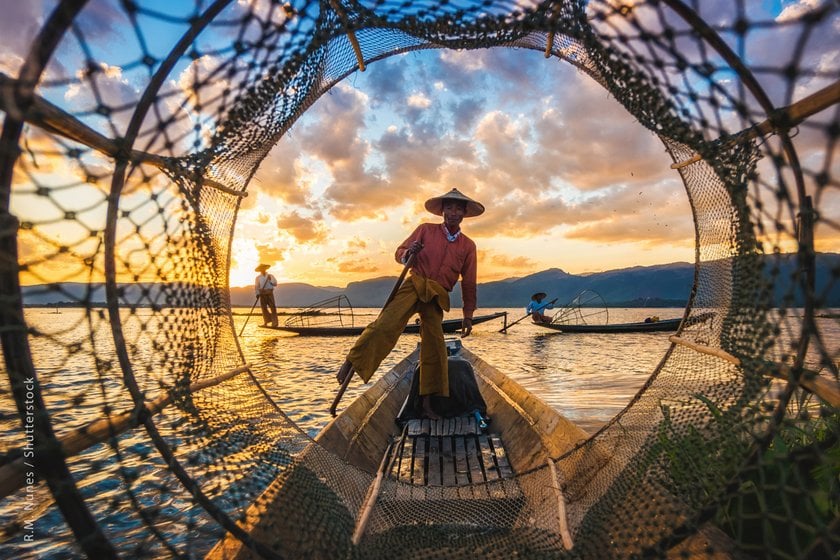
- Try Different Perspectives: Don’t just shoot from eye level. Try different angles and perspectives to make your photos more dynamic and interesting.
- Get Creative: Get down low, climb up high, or shoot from unusual angles to capture a fresh perspective.
Capturing Candid Moments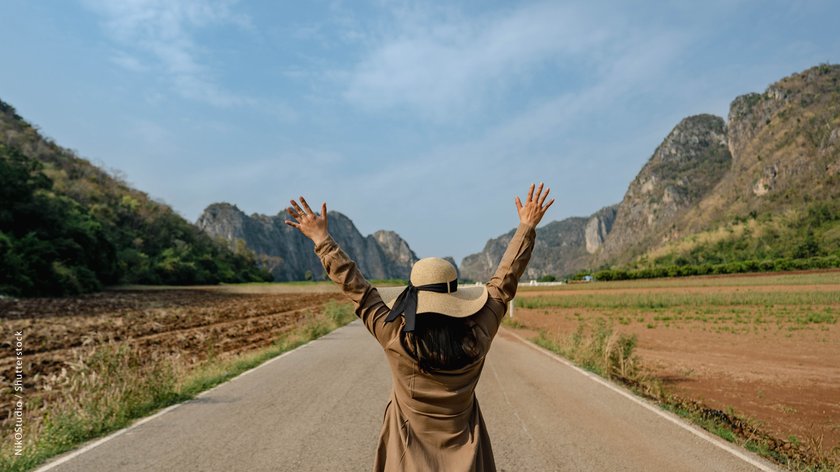
- Stay Ready: Candid moments often tell the most compelling stories. Keep your camera ready and stay observant to capture spontaneous interactions, expressions, and events.
- Be Respectful: Be respectful of people's privacy and always ask for permission before taking their photo.
The goal is not just to capture beautiful scenes but to tell a story that reflects your personal experiences and emotions. By implementing these tips, you can create travel photos that are not only visually striking but also resonate emotionally with the viewer!
Ideas for Travel Photos
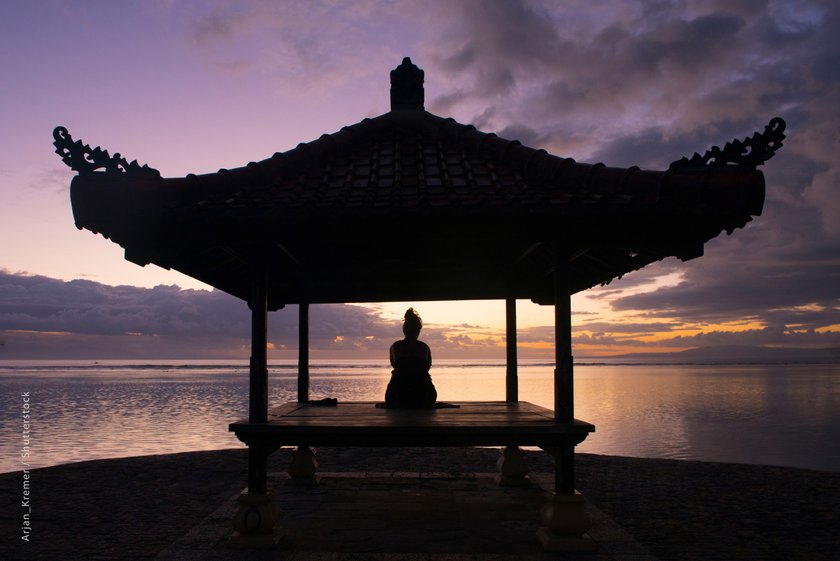 Creating memorable travel photos requires not only technical skills but also a creative approach. Here are some creative ideas that will help you capture unique and compelling images:
Creating memorable travel photos requires not only technical skills but also a creative approach. Here are some creative ideas that will help you capture unique and compelling images:
- Play with Reflections: Capture reflections in water, windows, or any reflective surface to add an artistic touch to your photos.
- Use Silhouettes: Photographing subjects against the light can create dramatic silhouettes that add mystery and intrigue to your images.
- Capture Movement: Use a slow shutter speed to capture the movement of water, clouds, or people. This can add a dynamic element to your photos.
- Experiment with Depth of Field: Use a wide aperture to create a shallow depth of field, making your subject stand out against a blurred background.
- Capture Local Life: Photographing local people going about their daily lives can provide a glimpse into the culture of a place.
- Include Natural Frames: Use trees, archways, or windows to frame your subject naturally. This helps to draw the viewer’s eye to the main point of interest.
- Experiment with Light: Play with different light sources, both natural and artificial, to create different moods and effects.
Keep in mind the most captivating travel photos are usually those that offer a unique perspective or narrate a story about a destination. By exploring these creative ideas, you can craft travel photos that not only stand out but also offer a fresh viewpoint on your travels! We also recommend that you read the article “5 Secrets to Travel Photography Only Travel Photographers Know” to learn more from the pros.
Common Mistakes to Avoid
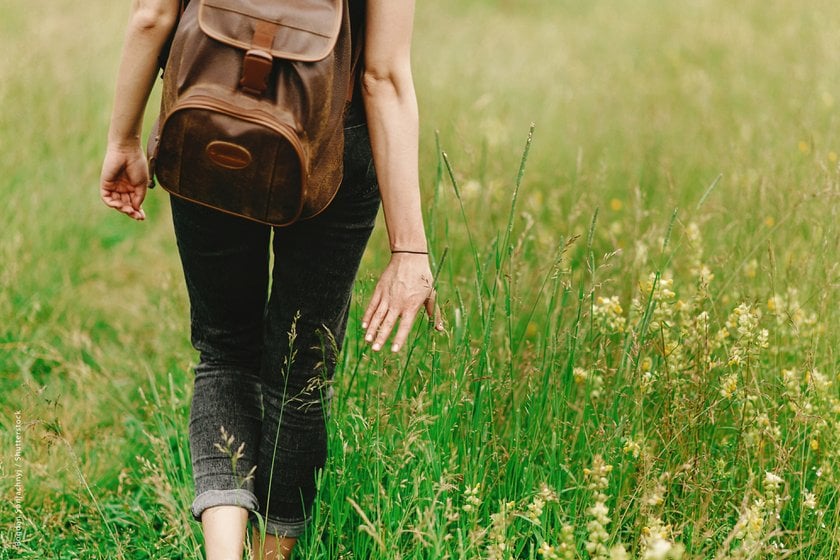 Capturing the perfect travel photo is not always easy, and even experienced photographers can make mistakes. Here are some common pitfalls to avoid when taking travel photos:
Capturing the perfect travel photo is not always easy, and even experienced photographers can make mistakes. Here are some common pitfalls to avoid when taking travel photos:
1. Overcrowded Composition
Including too many elements in the frame can make the photo look cluttered and confusing. Keep the composition simple and focus on the main subject.
2. Neglecting the Background
The background can either enhance your subject or distract from it. Be mindful of what is behind your subject and adjust your position if necessary to get a cleaner background.
3. Poor Lighting
Lighting can make or break a photo. The best natural light for photography is during the golden hour, shortly after sunrise or before sunset, when the light is soft and warm. Avoid harsh midday light, which can cause strong shadows and washed-out colors.
Now you can improve your travel photography and create images that are well-composed, well-lit, and free of distractions!
Enhancing Your Photos with Post-Processing
Post-processing is vital in travel photography as it allows you to enhance your images, correct errors, and bring your vision to life. Luminar Neo, developed by Skylum, is a particularly effective tool for this purpose.
Capture the World in Stunning Detail with an AI-Powered Photo Editor
Try Now!
Key Features
- Healing Tools: Facilitates the removal of unwanted objects, spots, or blemishes in one click.
- AI Enhancement: Automatically suggests improvements for color, detail, and exposure.
- Layer-Based Editing: Allows adjustments to specific areas of the photo without affecting the entire image.
- Creative Effects: Enables the addition of artistic effects like sun rays, fog, or glow.
- Compatibility: Can be used as a standalone application or as a plugin for Adobe Photoshop and Lightroom.
Harnessing Structure AI in Luminar Neo
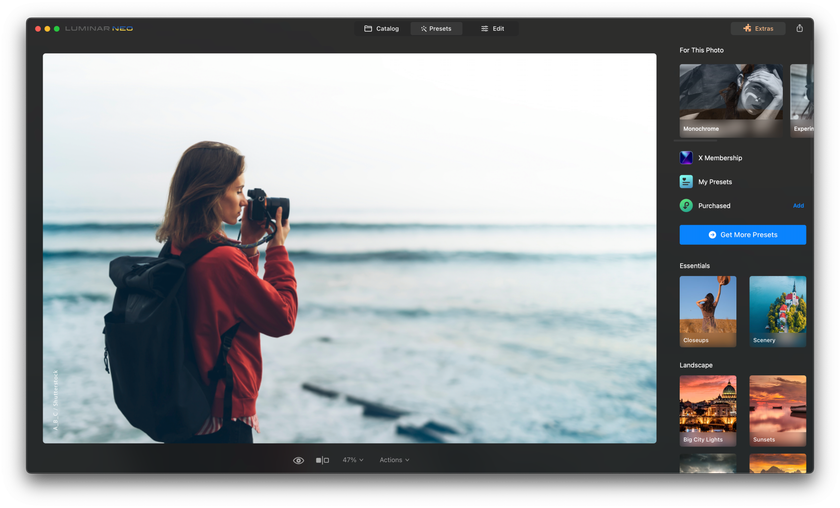 Structure AI, a feature of Luminar Neo, offers a unique blend of clarity and detail enhancement without compromising the natural look of photos.
Structure AI, a feature of Luminar Neo, offers a unique blend of clarity and detail enhancement without compromising the natural look of photos.
- Natural Enhancement: Instead of overemphasizing details, Structure AI boosts sharpness while keeping the photo's innate aesthetics intact.
- User Simplicity: With just a single slider, users can elevate image clarity and contrast effortlessly.
- Human-Touch Preservation: While it accentuates background textures, it intelligently leaves human figures untouched, avoiding any artificial distortions.
- Elevating Backgrounds: Plain backdrops become visually captivating, adding depth and richness without distractions.
In essence, Structure AI blends the best of AI and photography, ensuring images are both stunning and authentic.
Your Tool for Revealing Photo Structure Effortlessly
Discover!Conclusion
Mastering photo structure is key to transforming your travel snapshots into captivating stories. This guide has equipped you with essential techniques, creative ideas, common pitfalls to avoid, and tips for using tools like Luminar Neo.
With these tips in hand, grab your camera, embrace the art of photo structure, and start creating memorable travel stories. Capture the stories and emotions they evoke!










